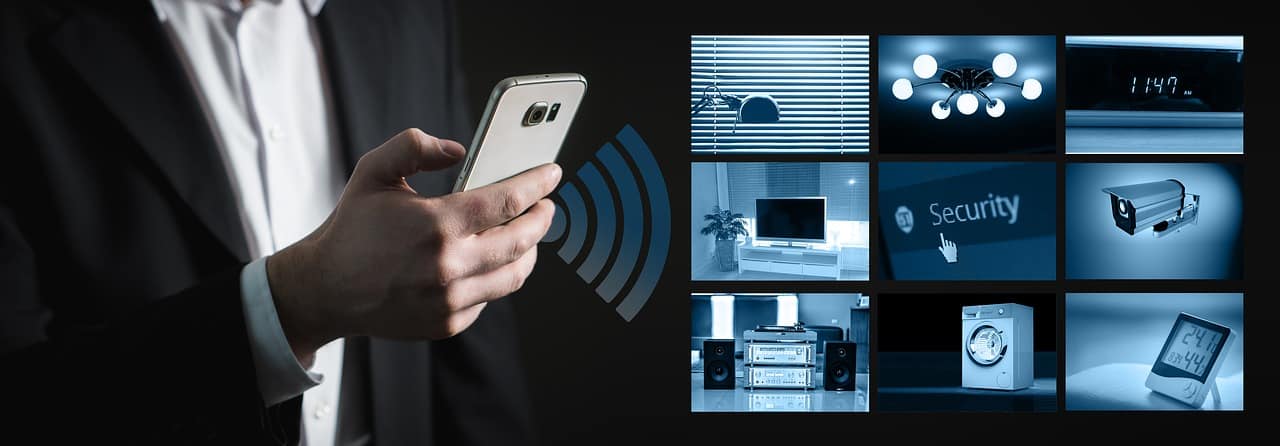Home security systems come in all shapes and sizes. They can be as simple or as complicated as you want. When most people think of a security system; they tend to think of commercial buildings with high tech components that may seem way beyond what a home may need.
A home security system uses devices (door sensors, alarms, motion sensors, etc.) to secure your home from intruders or ward off potential intruders. Many security systems often communicate with each other and can be controlled through a single alarm system.
However, home security systems can be much simpler than commercial security systems and still offer the same protection. A home security system can provide you peace of mind, protect your and your family; all for much less than you may imagine. There are home security options for every type of home that exists, and even options for renters as well.
A home security system should be as unique as you are, so it should not be a decision or purchase made in haste. We’ve put together this guide to help you understand the details of a home security system, how it works, and even some suggestions that you may want to consider when it comes time to choose your systems. Keep reading to learn more…
What is a Home Security System?
A home security system is really an umbrella idea that includes anything you do to help protect your home, property, and the people you love. There are several types of home security, and we’ll get into that in a little bit.
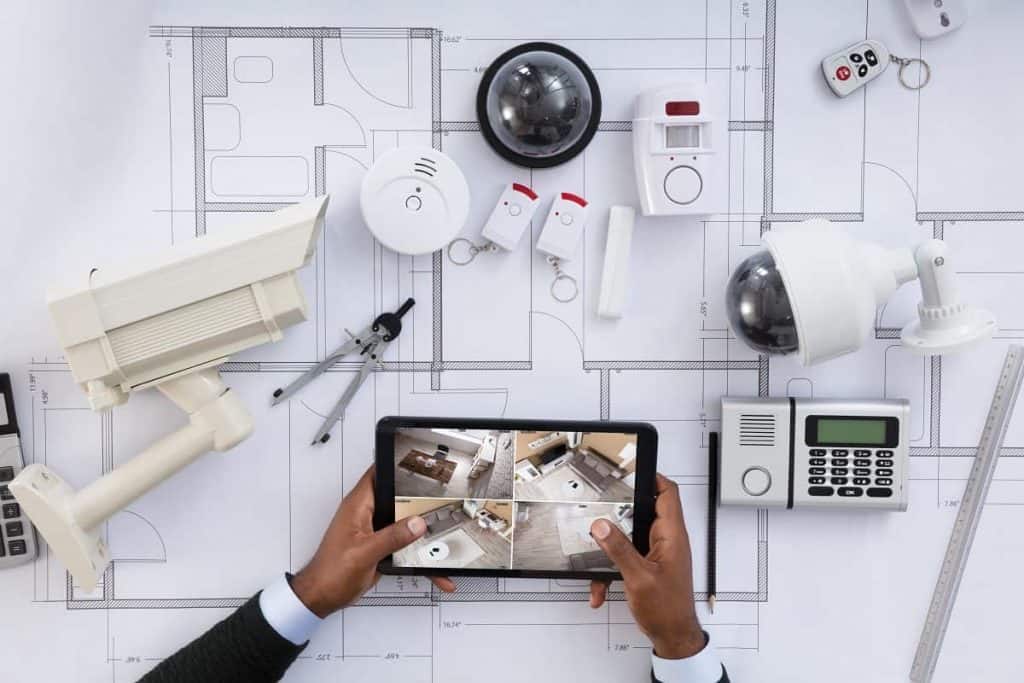
However, what most people consider a home security system is a group of electronic monitoring devices designed to work together. The system allows you to monitor your home and sends an alert if something happens.
Many home security systems differ and some things to pay attention to are:
- How the system is designed
- The monitoring options
- The number of components
- Upfront and annual/monthly cost
- Compatibility with other devices and brands
Types of Home Security
Like we mentioned, you have options when it comes to increasing the security of your home. In addition to using basic protections, such as door and window lock, a home security system can allow you to monitor movement in and around your home, control access, and even signal for help in an emergency. But that is not all, the options are almost unlimited, and will probably depend on your specific needs, where you are located, and, like all things, what you are willing to spend.
Wired Home Security
There are two basic types of home security systems. The first and oldest type is wired home security systems. These systems are wired directly into your home’s electrical system.
The problem with a wired system is you are sometimes limited by the available connections, and if the wiring is not already in place, adding a wired system to an existing home can be labor intensive and very expensive.
Wireless Home Security
The other option is to use a wireless home security system. Wireless home security systems are now are able to offer the same level of protection, if not more, then was ever possible with a wired system.
Since the components are not tied to electrical wiring availability, they can be set up in custom configurations. Adding extra devices is quick and easy; something usually not possible with a wired system.
How You Use Your Home Security System
Deciding to add a home security system is only the first step in a process that can be complicated for some. It can be easier by taking the process one step at a time. Another important decision is to decide on the installation and monitoring plans for your system.
While there is a bit of wiggle room, and options may vary a little bit, depending on your location and the type of system you want. However, you are looking at 3 basic categories.
Professionally Installed Home Security with 24/7 Monitoring
The most popular option until recently and the only option in the past is to enlist the services of a professional home security company. Not only do they offer 24/7 monitoring options and install your system, but they also have systems available.
Most professional home security companies offer their own security packages that include many of the most popular and basic necessities to secure your home. They are also likely to have several bundle options to meet the needs of various homeowners.
Pros:
- Professional Installation
- 24/7 monitoring
- Support Assistance
- Additional protection against loss or damage
Cons:
- Usually costs more than a DIY home security system
- Fewer custom options
- Limited availability in some locations
DIY Installed Home Security with 24/7 Monitoring
Some professional security companies give their customers the option of installing their own system. There are also several security monitoring services that can be used with systems that are bought from third-party security retailers.
There are often limitations to the monitoring capabilities when using DIY security devices. First, they need to be compatible with each other.
Next, the monitoring company must be able to access the devices to monitor them. Some monitoring companies have different packages that cover the size of a home and optional devices. It is also possible that a monitoring company will only be able to monitor the main control alerts, leaving any secondary devices up to the homeowner to make sure they are properly connected and working.
A DIY installation comes with the assumption that you are responsible for proper installation, working devices, connectivity, and maintenance. Monitoring services will not take on the responsibility to ensure that your devices are in working order. Although some can test a signal, they will not know if the devices are working correctly.
Pros:
- More customizable
- 24/7 monitoring
- May cost less than a professional system
Cons:
- Monitoring limitations
- Limited availability in some locations
DIY Installed and Monitored Home Security
These days you can find several types of home security systems and individual security devices buy and install yourself. And if you choose, you do not need to use a monitoring service. This means that you will be monitoring the entire system yourself.
Pros:
- Complete control
- Most customizable
- Limitless options (when compatible devices are used)
- No recurring monthly fees
Cons:
- No backup protection
- Only monitored when you possible
- No additional protection from loss or damage
Self-monitored systems are fine for many homes, and with the advances in technology, they will continue to improve. Where they fall short is the need to be constantly checked. Professionally monitored systems allow you almost to forget the system is there beyond arming and disarming, and paying for it, of course.
How Does a Home Security System Work?
Now that we know the basic types of home security and the monitoring options it is important to understand how the system works. A great way to think of your home security system is like a spider web that covers your home and property. Like a spider web, it can cover a few small areas, or be massive and cover a large area in a dense web.
Home security systems can be as varied as there are spider webs. What both have in common is that when working properly, every section is connected to every other section; break one and the entire web (system) is compromised. What this means when it comes to a home security system is communication between each individual unit, the units and the control, and then to you, or a monitoring company.
Check out this example to understand how this happens.
- A window is opened by an intruder
- The 2-part sensor on the window will trigger an alert as soon as the window began to move.
- The sensor immediate sends an alert to the control panel
- When armed the control panel then activates the alarm and sends an alert
- The alert is received, by you or your monitoring company
- Police are called
What is extremely important to understand is the alerts sent between the sensor and control panel then on to either you or a monitoring company happens almost instantly. When a highly sensitive sensor is activated with high-quality monitoring, it is possible that the police may have been alerted before the intruder is completely through the window.
There are thousands of variations, but the basic premise is the same. Most home security devices are set up to send an alert to central control, what happens after that is going to depend on the system set up, what device was triggered, and the type of monitoring.
You may not always want the police to be called. Some systems use video cameras or doorbell cams to record automatically when they sense motion and then alert you that someone is within view. If that is someone dropping off a package, or a friend dropping by to visit, all you need is the camera to alert you to their presence and no further action is automatically taken.
Related: 22 Thrifty Tips for Better Home Security
Is a Home Security System Worth It?
Only you can decide that a home security system is worth the cost and maintenance. What you may want to consider is the potential risks of not having a method instead. Most often discussing home security is centered on preventing criminal activity, but there are so many other things that a home security system can provide.
Protection from Disasters
Home Security Systems can help prevent home disasters such as fire, flood, and gas leaks with specialized sensors designed to detect even the slightest changes in the environment. Some sensors can also be used to monitor for water leaks. Smoke and carbon monoxide detectors save hundreds, if not thousands of lives each year.
Emergency Medical Contact
Individuals with medical issues find home security systems a vital tool to help them receive medical services when they need it. Even people without pre-existing matters can benefit from quick response emergency services. Also the most basic home security can make contacting the authorities quick and easy.
Monitor and Control Home Access
Homes with teenagers or other people that come and go at different times may find that the ability to monitor this activity and, in some cases, allow or prevent access invaluable. Parents of children that arrive home from school before they are home from work can see when their children visit and even what they are doing with the help of security cameras or even RFID technology.
Most people have heard or seen images captured on Nanny cams or other security cameras that have allowed families to discover abuse and other horrible acts that have occurred. Using these devices enable many people to have undeniable proof against these perpetrators.
We understand that not everyone can afford monthly monitoring fees or even the cost of several security devices. We also know the peace of mind that can come from knowing your home, and most importantly, your family is as safe as possible.
Home Security Buying Guide
Once you decide to go with a home security system, you are going to need some idea of the type of system that will fit your personal needs. There are several options available depending on whether you decide to go with a professional system or build one yourself. Either way knowing the basics can help you make an informed decision. Here are the most common home security devices and what they are designed to do.
Hub or Base Unit
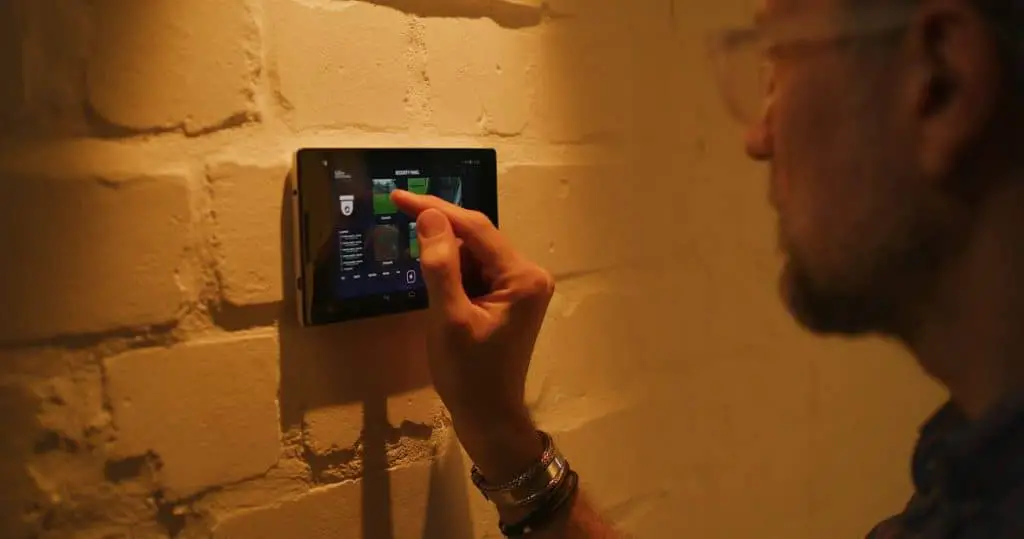
Every home security system needs some way to control and monitor it. There are plenty of options available, from smart hubs, control panels, even high tech tablet control pads. The type of control center you need to have is going to depend on the system and the individual components you use. Very basic systems can even be controlled from a smartphone.
Cameras
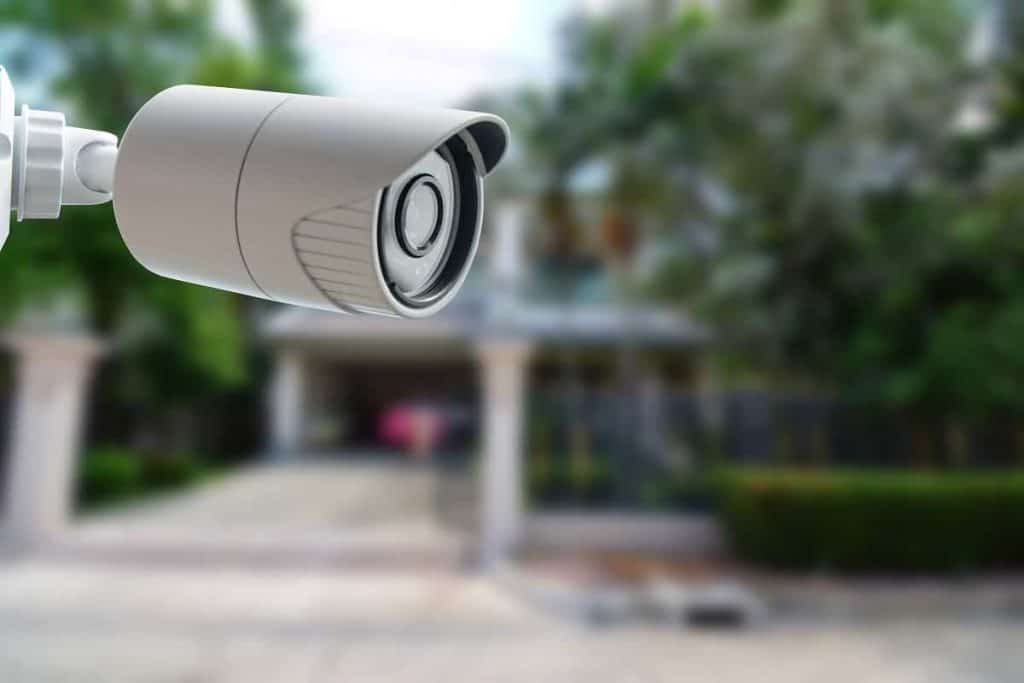
Perhaps the most well-known home security component is the security camera. Technology has advanced so far that you can now find security cameras integrated into almost anything you want. One very popular camera option is the video doorbell, it replaces a traditional doorbell. A video doorbell can show, not only who is at your door, but can even allow you to communicate with them on most models.
Cameras also allow you to watch your home both inside and out with live streaming capabilities, so you can know what is happening in real-time. The options for live viewing and even recording are different with each camera and may be limited by any service plan you may have.
Alarms

The one aspect of home security that most are familiar is an alarm. Often the foundation of a home security system resides in the ability to alert you or someone else in the event of an issue. The alarm types can vary from a silent alert when a sensor is triggered to a full siren activated by an attempt at access, and everything in between.
Sensors
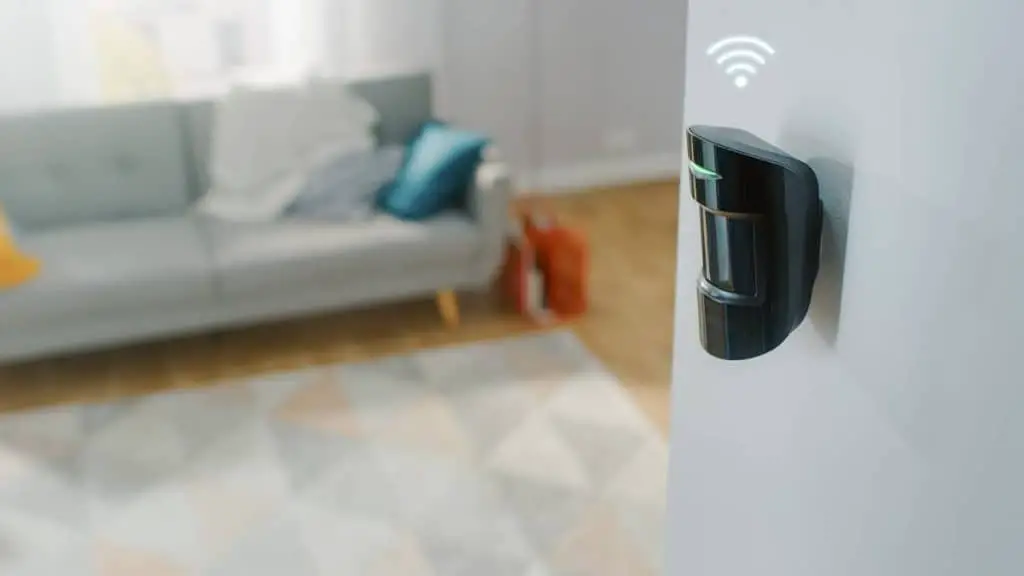
Sensors of all types are the heart of a home security system. They are the devices responsible for detecting a change and alerting the central control. Some sensors you may already be familiar with include smoke detectors, motion sensors, and thermometers. All of these rely on intricately designed sensor technology that continues to improve.
Bonus Home Security Options
The basics are just the beginning, with the rapid advances in smart technology integrations between home automation and security is quickly become an integral part of our everyday lives. Some of the most common devices already used in homes everywhere can add to your home security systems ability to simplify and integrate your life.
Smart Speakers
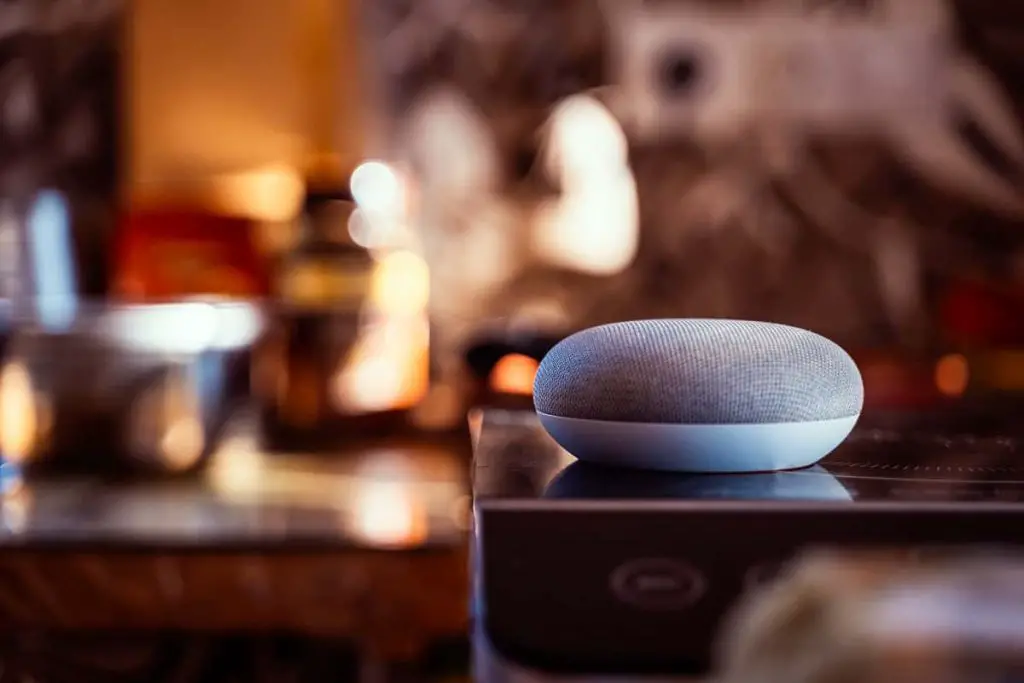
Almost everyone is aware of the popular smart speakers that allow you to use a voice-activated virtual assistant to do things such as; answer common questions, manage your calendar or shopping list, and even regulate other devices.
Able to do so much more than just play music, many of the newer models of smart speakers even have smart hubs built right into them that can be used as a central hub for an entire home security system in some cases.
Smart Home Devices
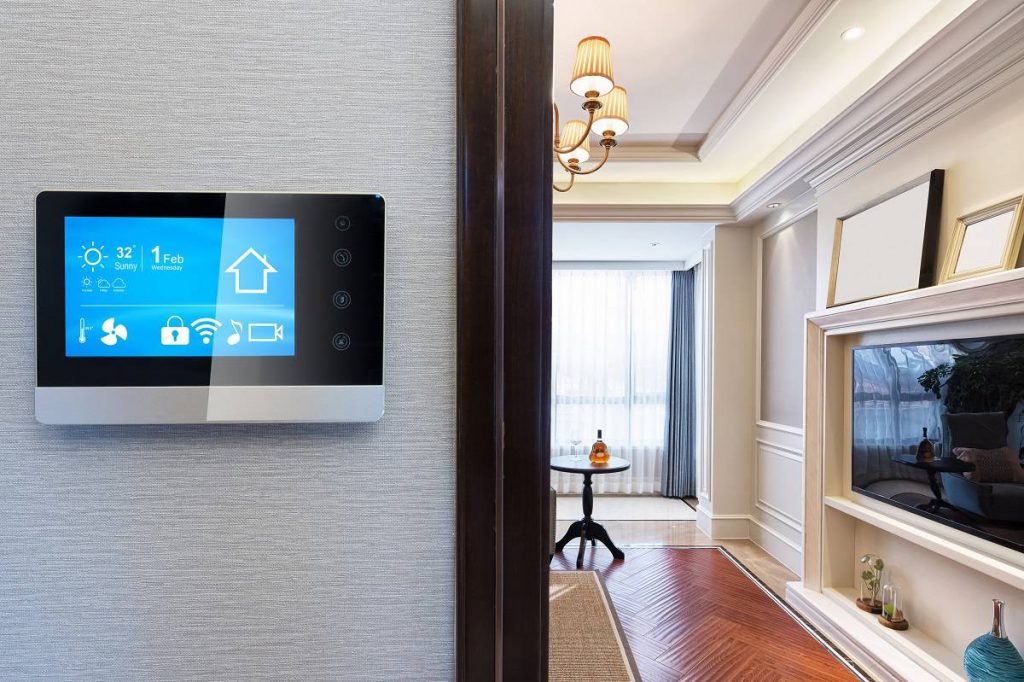
Technology is continuing to provide several options to allow users to add smart technology throughout the home. Most of these devices are now being manufactured with the capacity to be connected to the smart speakers discussed above, so they can instantly be integrated into your home security system.
This technology already allows you to order necessities, like toilet paper and laundry soap, by just asking or unlock your front door even while you are still at work.
A Few More Things to Consider
In addition to purchasing and installing a home security system, there may be some things that consider that may be part of having home security.
Additional Fees
In a few instances, you may find that there are fees above and beyond the cost of monitoring services. One of the possibilities can be permits. Some housing codes and communities require that homeowners with security systems obtain a permit to operate their home security system.
This is most likely found in areas of high false alarms or areas that offer their own security options and want to deter outside services from being used. In rare cases, city permits may be required as well.
Related: Best Home Security System Without Monthly Fees
Insurance
Insurance can be an additional cost, or you can get a discount depending on your carrier, their requirements, and the type of system you have. Luckily there are few instances where an insurance company will increase your rates due to installing a security system, but they may require you to adjust your coverage in some ways.
According to the New York Times, a good security system paired with monitoring from a trusted company may save you as much 10 to 15 percent of your home insurance costs. For the biggest saving look for monitoring with a UL-listing, meaning they have met or exceeded high standards in safety and emergency response.
Connection Services
There are several ways that a home security system can be connected to the outside world. Wired systems are often connected using traditional landlines. Though, as technology advances and most people are moving away from having a landline, these are on a drastic decline.
Wireless systems: Wireless connections can work in several different ways, and some may use more than one link to ensure the connection is stable. Cellular based wireless connections are the most stable option for home security. This is because a cellular signal is less likely to be impacted by a power outage, though it is not impossible.
Wired systems: Another option is Ethernet, this involves the hub or central control being connected directly to your home’s router via Ethernet cable. And finally, Wi-Fi has become an increasingly popular communication feature for many home security systems. Both Ethernet and Wi-Fi are dependent on power to the router and a reliable internet signal in order to communicate. When there is a power outage, no home security either.
The best options will be one that includes a combination of cellular and internet connection, either Ethernet or Wi-Fi. These systems are designed to automatically find the strongest, most stable connection to communicate and can switch between them almost instantaneously.
As wireless home security technology continues to advance so will the connection possibilities. For now, these are the best options available.
Going Beyond the Security System – Tips for Increasing Your Security
Your home security system is in place, you’ve worked out any issues and you are armed. Now what? Security doesn’t and shouldn’t stop there. In addition to making regular checks of your home security system, even if you have it professionally monitored, there are a few things that can increase the security of your home, and hopefully prevent your system from ever having to engage.
Signs and Stickers
Every security company, whether they provide the system or just do the monitoring, and even security device manufacturers produce signs, stickers, and tons of alert options to signal that your home is protected. These not only act to signal potential criminals, but they work as built-in advertising to your neighbors and guests.
Every security expert on the plant will tell you to use these signs. Tons of interviews have been done over the years and one thing that has remained constant is that a home has these signs are a deterrent to most thieves. There is one import caveat though, they must be the real deal.
Thieves have become keen on the availability of fake security signs. So, go with the ones provided by your security company. IF you have installed your own security system and are self-monitoring, spend the extra money for good quality sign and emblems instead of just grabbing whatever is the cheapest. To a potential intruder, the cheap stuff is only used by people pretending to have security.
Keep Windows Closed
We know it can be very tempting on a cool spring day or fall afternoon to throw open those windows and let in the fresh breeze. It is fine to do once in a while, but every time you open a window, there is a chance you will forget to close it or lock it; leaving that access point vulnerable.
If you must feel the fresh air, then there are some options to give you the best of both security and breeze. Adding security screens to your windows will allow you to be able to open them anytime you wish without the worry of someone being able to enter. While a security screen appears much like an ordinary window screen, they are made from high-density stainless-steel mesh that cannot be torn or even cut.
Window Coverings
When it comes to securing your home one of the cheapest options is to limit the visibility of your valuables. Thieves have reported that they regularly check out their potential targets by looking through windows and doors to decide if they want to enter a home and even plan their attack.
Using traditional window covering like sheers, blinds, and curtains reduce the ability to see into your home. As an added bonus, when an intruder cannot see in, they also do not know if there is someone inside. One of the biggest reasons a thief will bypass a home is that it is occupied.
Keep Your Plans off Social Media
And finally, there has been a huge rise in crime against homes when people are on vacation or otherwise away from their home for a known amount of time.
This has repeated been discovered to be a direct result of the homeowner, or occupant, posting their travel plans on social media. In these times, thieves will take every possible advantage they can get and prowling social media sites gives them an abundance of opportunities to get the information they need.
We understand you want to share your amazing journeys with your friends and family, just do it when you get back, tell the story after the fact. This will go a long way toward removing the target off of your home.
Related read: Common Home Security Mistakes (and How to Fix Them)
Wrap Up
To sum things up, anything that you use to increase the safety of your home could be considered home security. But when you are ready to take the leap to a real sense of security and peace of mind a home security system can provide that and so much more.
Whether you decide to purchase and install a system yourself or enlist the services of a professional company, you know have the knowledge to make an informed decision. We hope this article has helped you in your journey. We send you and your family all the best for a safe and happy home!

